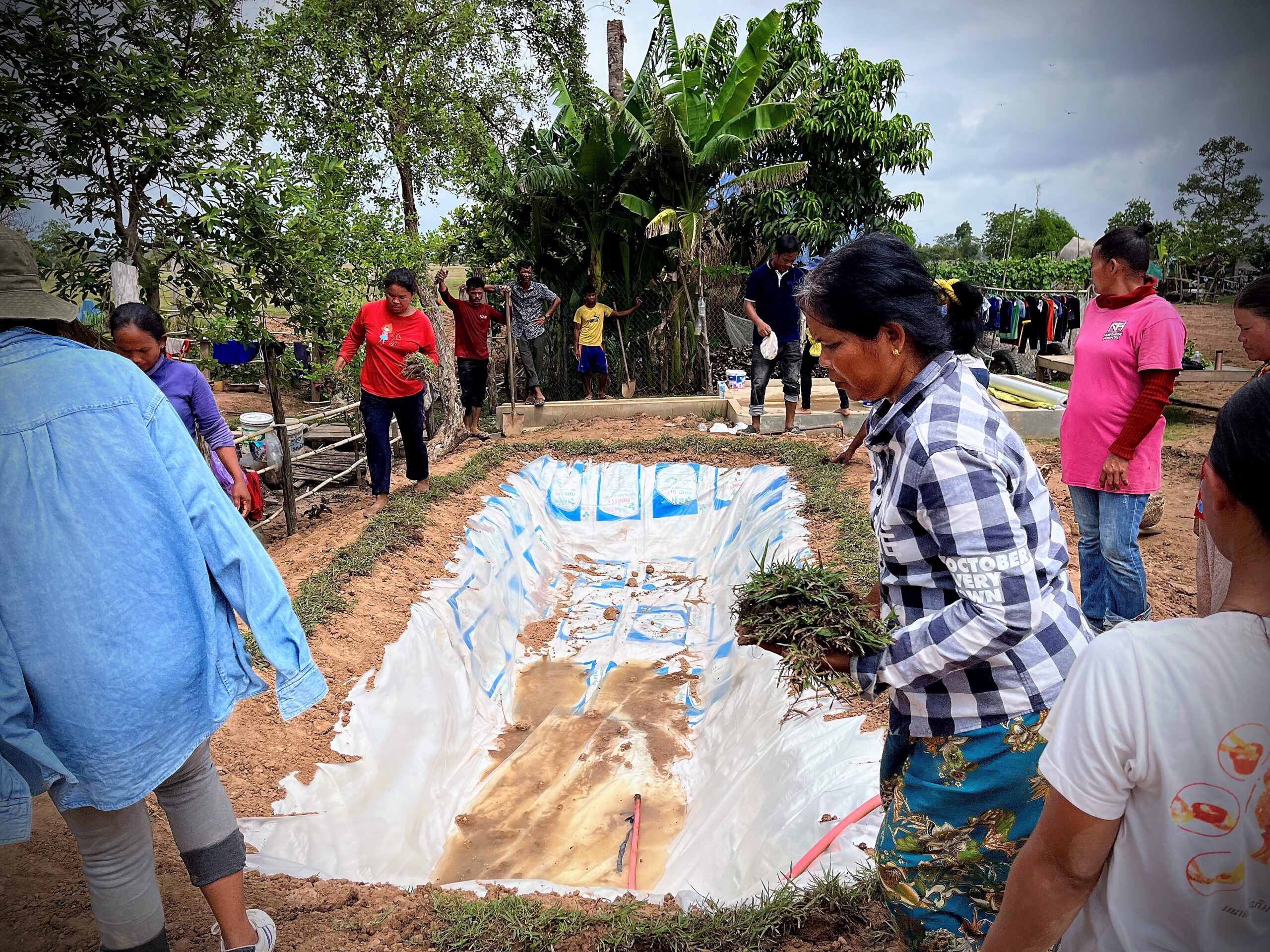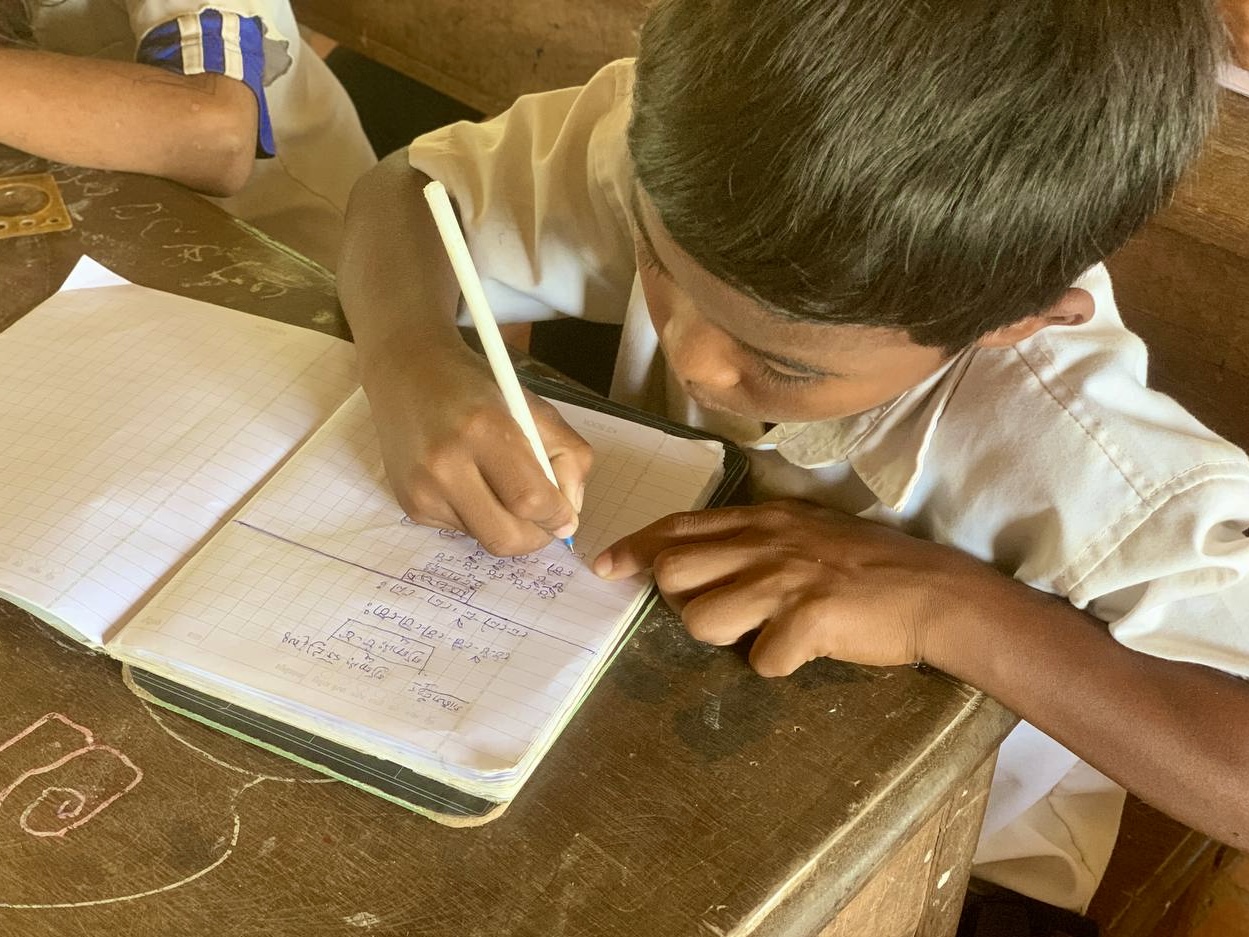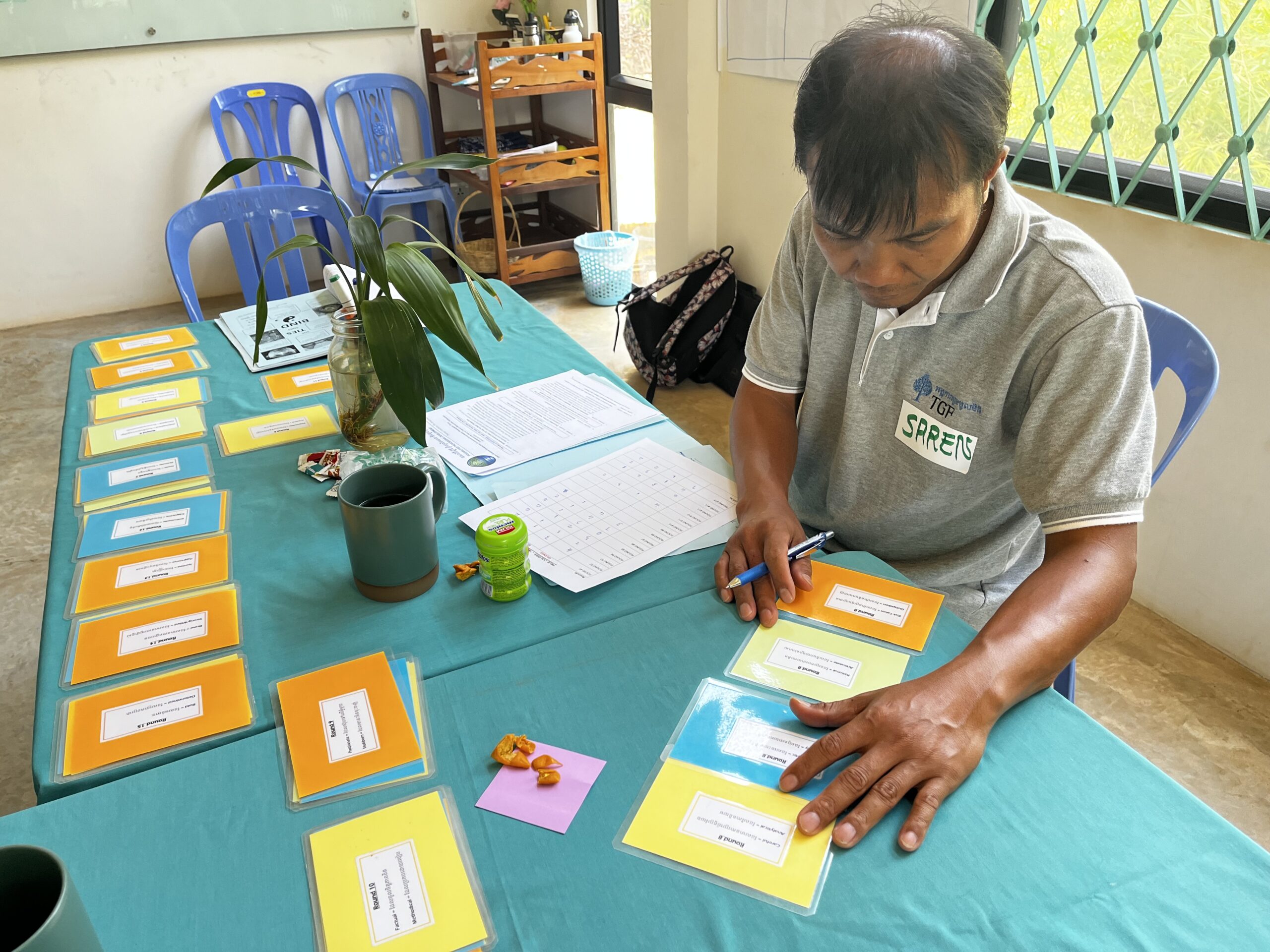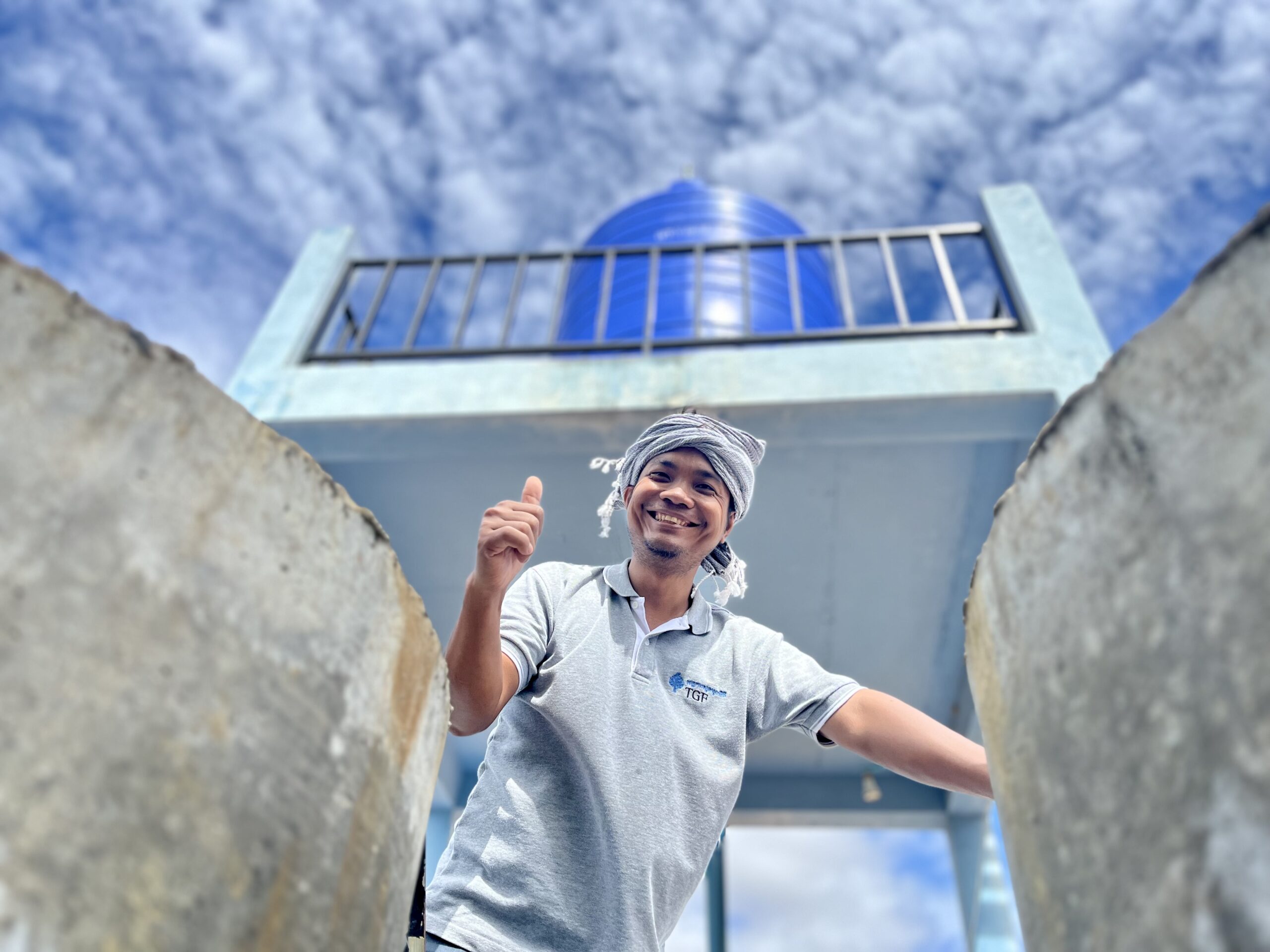At TGF’s Integrated Farmer Field Schools (IFFS), we believe that agroecology is the foundation of sustainable farming. Our program is designed to help farmers learn about the latest concepts and methods, empowering them with the knowledge and skills they need to boost their crop yields and increase their returns.
Through field observations, simple experiments, and group analysis, our IFFS schools provide hands-on training in various topics such as animal raising, vegetable beds, fast composting, chicken feed making, fish raising, plastic pond construction, and more. This practical approach is key to ensuring that farmers can apply what they learn on their own farms and make informed decisions that benefit their livelihoods and communities.
This year, we’re proud to have established six schools in different villages, benefiting 93 participants (69 females) who are currently undergoing training on these varied topics.
Let’s have a glimpse into what a typical day at our IFFS schools looks like:
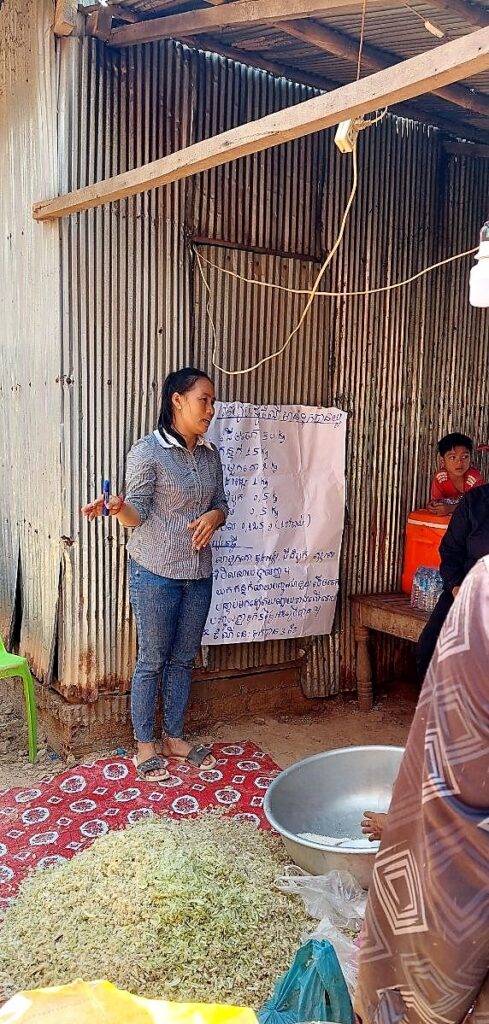
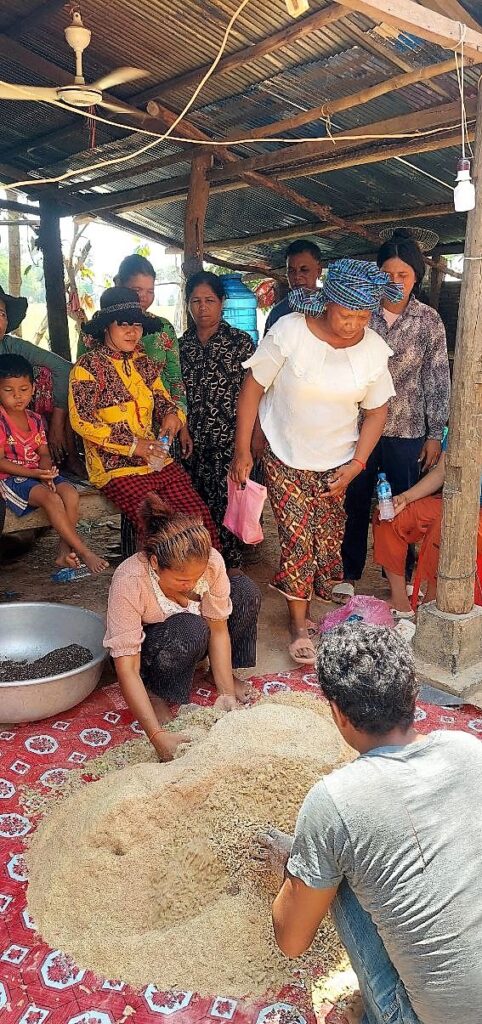
In Kbal Kdouch village, Lveng Ressey commune, we recently had 16 participants (12 females) learning about chicken feed making. This topic focuses on reducing farmers’ expenses by teaching them how to create their own chicken feed using low-cost local products such as rice bran, banana tree, salt, sugar, and cow dung. By empowering farmers to make their own chicken feed, we hope to promote self-sufficiency and economic sustainability among rural communities.
Another example of a topic covered in our IFFS schools is fish raising.
In Ou Khlong village, Pongro Kraom, we recently taught 16 participants (13 females) how to raise walking catfish. During the training, the farmers acquired skills on how to create the appropriate environment for fish, including building a suitable pond. Together, they excavated a pond and covered the base with plastic before filling it with water. The cover was then secured with rocks and grass. Prior to introducing the fishlings, the participants prepared a mixture of cow dung and natural herbs and let it sit for a few days to stimulate plankton growth. The fish take around three months to mature, after which they can be caught, sold, and consumed.
It is truly rewarding to witness the progress of our farmers as they learn and develop new skills through these field schools. We believe that the knowledge they gain will have a positive impact on their livelihoods and communities.
